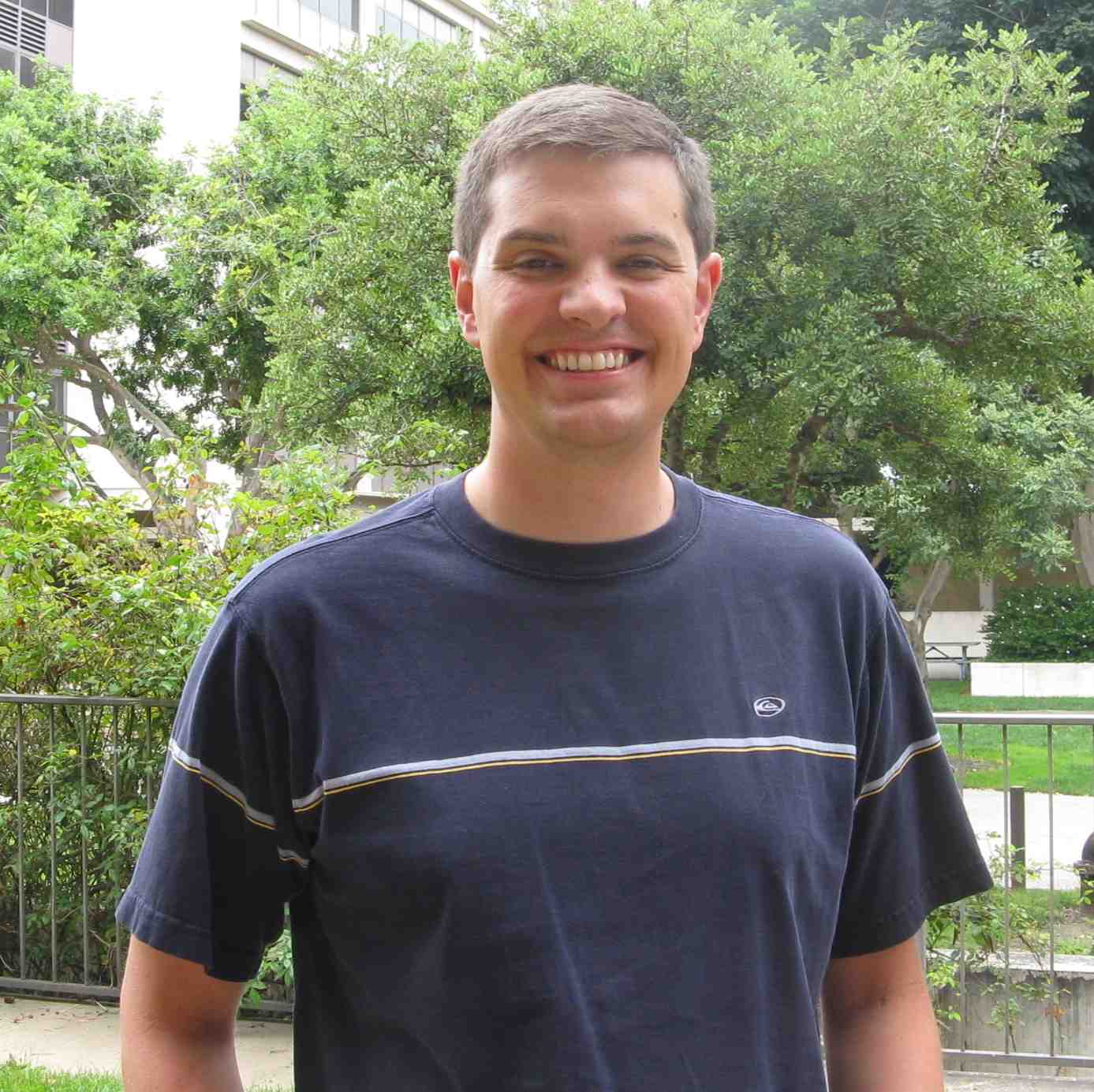Functional roles of IkappaB proteins in T cell and B cell proliferation
Bryce Alves
Appointment Period: 2010-2012, Grant Years: [26,27]
 Misregulation of the transcription factor family, NFkappaB (NFkB) by IkappaBs (IkB), whose members include alpha, beta and epsilon is known to play a significant role in the development of leukemia and lymphoma. Evidence from human studies have shown the loss of IkB regulation leads to lymphoid malignancies, but the mechanism by which they function, via NFkappaB or not often remains unclear.
Misregulation of the transcription factor family, NFkappaB (NFkB) by IkappaBs (IkB), whose members include alpha, beta and epsilon is known to play a significant role in the development of leukemia and lymphoma. Evidence from human studies have shown the loss of IkB regulation leads to lymphoid malignancies, but the mechanism by which they function, via NFkappaB or not often remains unclear.
I initially started in this lab to identify how the ablation of the different IkBs would affect T cell proliferation and survival, but have most recently expanded my studies to include B cells. In my studies into how the ablation of IkBepsilon affects T cells, I found that T cells lacking IkappaBalpha show decreased proliferation and decreased survival when compared to wild type controls. I then examined NFkappaB responsive gene expression associated with T-cell proliferation and found a very significant decrease in cyclin D3. Although I initially hypothesized that IkBepsilon has chaperone function in the NFkappaB generation pathway, my subsequent studies into the different members of the NFkB family found no significant difference in their expression or activity. I will now examine whether IkappaBalpha has a positive role on gene expression because of a nuclear function. I have also investigated how the ablation of IkBs affects B cell survival and proliferation. My preliminary findings show that with the ablation of IkBe, B cells undergo increased proliferation and show increased survival in response to both antigenic stimuli (IgM) as well as inflammatory stimuli (LPS). My investigations into the NFkB activity of the IkBe deficient B cells revealed increased nuclear cRel activity, but unchanged RelA or RelB. These preliminary results suggest that IkBepsilon acts as a critical inhibitor of the NFkB protein cRel in B cells, and that its negative feedback function targets cRel, akin to IkappaBalpha negative feedback targeting RelA. This model of two largely insulated negative feedback loops targeting different dimers within the NFkappaB system alters our understanding of how NFkappaB is regulated in B-cells and is relevant to our understanding of misregulation occurring in lymphoma.
PUBLICATIONS (resulting from this training)
Alves BN, Shokhirev M, Almaden J, Shih V, Hoffmann A. Ablation of IkappaBepsilon facilitates increased cRel/p50 activity in B cells resulting in increased B cell proliferation and survival. (2012). In preparation.
I-kappa-B-epsilon is the specific cRel negative feedback regulator in B-cells and critically controls B-cell proliferation and survival. Bryce N. Alves, Maxim Shokhirev, Jon Almaden, Vincent Shih and Alexander Hoffmann (in prep, to be submitted by the end of the year).
Other publications (prior to Training Grant appointment):
Hedrick SM, Ch'en IL, Alves BN. Intertwined pathways of programmed cell death in immunity. Immunol Rev. 2010 Jul;236:41-53. Review. PMID: 20636807.
Alves BN, Marshall K, Tamang DL, Leong J, Redelman D, Elliott V, Lowe ME, Hudig D. Lipid-dependent cytotoxicity by the lipase PLRP2 and by PLRP2-positive cytotoxic T lymphocytes (CTLs). Cell Biochem Funct. 2009 Jul;27(5):296-308. PMID: 19548271; PMC2837949.
Alves BN, Leong J, Tamang DL, Elliott V, Edelnant J, Redelman D, Singer CA, Kuhn AR, Miller R, Lowe ME, Hudig D. Pancreatic lipase-related protein 2 (PLRP2) induction by IL-4 in cytotoxic T lymphocytes (CTLs) and reevaluation of the negative effects of its gene ablation on cytotoxicity. J Leukoc Biol. 2009 Sep;86(3):701-12. Epub 2009 May 18. PMID: 19451396; PMC2735286.
Tamang DL, Alves BN, Elliott V, Redelman D, Wadhwa R, Fraser SA, Hudig D. Regulation of perforin lysis: implications for protein disulfide isomerase proteins. Cell Immunol. 2009;255(1-2):82-92. Epub 2009 Jan 14. PMID: 19147124; PMC2667449.
Tamang DL, Alves BN, Elliott V, Fraser SA, Redelman D, Hudig D. Low dose IL-15 induces snap arming of CD44(low) T lymphocytes in the absence of antigen. Cell Immunol. 2008 Feb;251(2):93-101. Epub 2008 May 16. PMID: 18485336; PMC2613908.
Tamang DL, Redelman D, Alves BN, Vollger L, Bethley C, Hudig D. Induction of granzyme B and T cell cytotoxic capacity by IL-2 or IL-15 without antigens: multiclonal responses that are extremely lytic if triggered and short-lived after cytokine withdrawal. Cytokine. 2006 Nov;36(3-4):148-59. Epub 2006 Dec 22. PubMed PMID: 17188506; PMC1850105.
Berner MD, Sura ME, Alves BN, Hunter KW Jr. IFN-gamma primes macrophages for enhanced TNF-alpha expression in response to stimulatory and non-stimulatory amounts of microparticulate beta-glucan. Immunol Lett. 2005 Apr 15;98(1):115-22. Epub 2004 Nov 24. PMID: 15790516.
 Misregulation of the transcription factor family, NFkappaB (NFkB) by IkappaBs (IkB), whose members include alpha, beta and epsilon is known to play a significant role in the development of leukemia and lymphoma. Evidence from human studies have shown the loss of IkB regulation leads to lymphoid malignancies, but the mechanism by which they function, via NFkappaB or not often remains unclear.
Misregulation of the transcription factor family, NFkappaB (NFkB) by IkappaBs (IkB), whose members include alpha, beta and epsilon is known to play a significant role in the development of leukemia and lymphoma. Evidence from human studies have shown the loss of IkB regulation leads to lymphoid malignancies, but the mechanism by which they function, via NFkappaB or not often remains unclear.